First published in BEER August 2007.
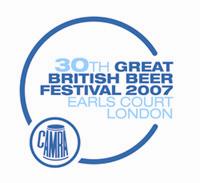
30th Great British Beer Festival 2007 Earl's Court London CAMRA
The Great British Beer Festival is not only a huge celebration of indigenous real ale but also regularly presents one of the best showcases for international beer you could hope to find. The imported beer bars, collectively known as Bières sans frontières, are an attraction in themselves, with a significant minority passing up on the vast choice of British cask beers to sample an expertly chosen selection of the rest of the world’s finest.
You may be surprised to learn that the presence of “foreign” beers is almost as old as the GBBF itself, expanding from a single table with 15 beers in 1980 to today’s three large and prominent bars offering a choice of hundreds.
BSF has played a major role in educating drinkers about the beery riches to be found beyond these shores, whether it’s rare cask ales from the Pacific Northwest, unfiltered Franconian lagers or stouts from Sri Lanka. This year a wider selection than ever is promised: organiser Andy Benson and his enthusiastic volunteer crew are aiming to stock beers from 30 countries to mark GBBF’s 30th anniversary.
Andy gave me an advanced peek at the bottled beer list so I could pick out a mixed dozen to recommend you clank home with. This was at an early stage with many more beers to be confirmed and already it was a tough choice – the full list should be posted at www.b-s-f.org.uk by the time you read this so prepare to be further dazzled.
To whet the appetite, let’s start at the German and Czech bar with one of Germany’s finest and hoppiest pale lagers, Jever Pils (4.9 per cent). The brewery, in the German part of the ancient territory of Friesland, is now part of the giant Oetker group but the beer still impresses with its strong earthy hop aroma, lively bone dry palate and a finish that softens slightly with hints of vanilla and cream.
From the opposite end of Germany comes another established classic, Heller Aecht Schlenkerla Rauchbier Märzen (5.1 per cent), the benchmark smoked beer from the celebrated brewing city of Bamberg in Franconia. Deep chestnut with a thick yellowy head, this has a smoky bacon aroma, a dry but smooth and nutty palate and a marmalade finish with a whiff of smoke reminiscent of Islay malt whisky.
A must-have from the Dutch and Belgian bar is Schans Van Vollenhoven Extra Stout (7 per cent), a once-legendary Irish-inspired Amsterdam beer now lovingly revived. Van Vollenhoven’s “Gekroonde Valk” (Crowned Falcon) brewery was once the biggest in the Dutch capital, but was absorbed by Heineken in the 1940s and later closed.
For decades afterwards a version of the stout was brewed by cold fermentation at Heineken’s megabrewery in ‘s-Hertogenbosch but dwindling volumes saw it phased out in 2002. Then late last year, after much lobbying, Uithoorn micro De Schans launched a smooth, roasty and bitterish authentic warm fermented and bottle conditioned version under license, based on the rediscovered 1946 recipe.
Another outstanding Dutch beer is Christoffel Blond (5 per cent) from Roermond in Limburg, an unpasteurised and unfiltered lager in the pils style but so good its brewers have opted not to brand it with that much-devalued label. This world class peachy golden beer has light malt, chewy almonds and stern herby hops on the palate and a long complex finish with honeyed yeasty notes.
The long Belgian list includes beers from small micros hard to find even in their own country, such as Loterbol Bruin (8 per cent) from a small brewpub in Diest. This very dark brown bottled conditioned ale is brewed without candy sugar and thus drier than most Belgian strong browns, and very fruity with a chocolatey, slightly tart finish.
Also unusual by Belgian standards is the modest gravity of Dupont Biolégère – a mere 3.5 per cent. But this hazy blond unfiltered organic beer from a classic saison brewer in Tourpes is full of flavour, with slight farmyard notes on the aroma, and a crisp toasty citric palate with a good dose of hops.
BSF buyers can always be relied upon to find unusual and high quality Belgian fruit beers, avoiding the sickly sweet excesses of the more commercialised brands. From this year’s list I’d pick Girardin Framboise (5 per cent), a raspberry brew from a traditional lambic brewer near Brussels: it’s dry and tart but softer than some, and bursting with natural raspberry fruit.
Moving to the rest of the world, Brooklyn Black Chocolate Stout (10.6 per cent) is a modern classic imperial stout from New York. Created by celebrity brewer Garrett Oliver, this black and powerful brew overflows with complex flavours: coffee, marmite, red fruit, cocoa, liquorice and burry hops.
Another dark delight, Asahi Premium Black (Kuronama) (5 per cent), is an old-established Tokyo speciality inspired by German Schwarzbier. Dark burgundy with a slightly spicy aroma, it has a dry but luscious blackcurrant roast palate and milky coffee on a long, dry but soft finish.
Coopers Sparkling Ale (5.8 per cent) from Adelaide, Australia, is now much better known among beer lovers but still unique and surprising. This deliberately cloudy bottle conditioned beer smells of pineapple chunks and fresh baked biscuits, with a prickly sharp palate softened by honey and fruit and a rounded peppery citric hop finish.
Finally I’ll chance a beer I’ve not encountered before – like a Durban pale ale or pineapple beer from the Shongweni brewery of Natal, making its GBBF debut. For many years now, the BSF crew have been busy proving that there’s more to US beers than Anheuser-Busch and more to Dutch beers than Heineken – let’s hope they can now show there’s more to South African beers than SAB-Miller Castle Lager. I have every faith they will.

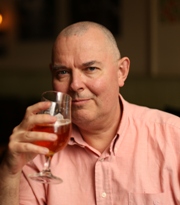
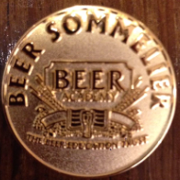
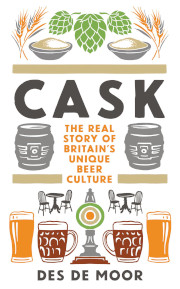
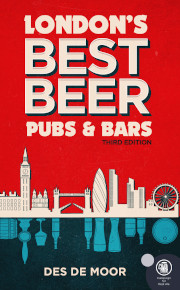
Leave a Reply